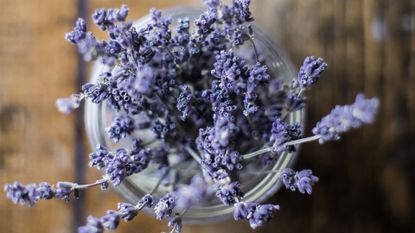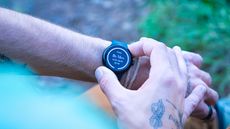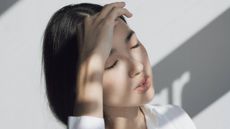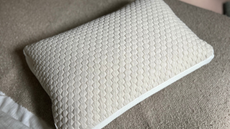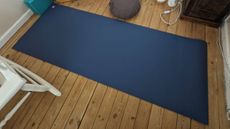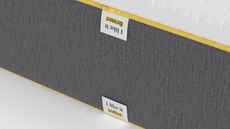There are plenty of sleep hacks that claim to help you drop off quicker and improve your snoozing habits. Some actually work, others not so much. To help sort out the difference, NHS doctor and resident expert at Time4Sleep Dr Frankie Jackson-Spence has taken a look at the most common tips and given her view on whether there's actually a scientific basis behind them. Read on for her thoughts.
While you're addressing your sleep habits, if you think your bed might be to blame, check out our best mattress guide for our top recommendations, or if your budget can't stretch, opt for one of the best mattress toppers instead (these can work wonders at breathings new life into an old mattress).
Hack #1: Decaf drinks
Theory: If you really need that cup of coffee or tea later on in the day, swapping regular caffeinated for decaf means it won't disrupt your sleep.
Doctor's verdict: valid
Decaf tea and coffee contain less than 5 milligrams of caffeine, so Dr Frankie says they're fine to drink in the evening. The normal versions, which can contain 20x this amount of caffeine, are not. It's important to consider what time you make the swap, though, to make sure the caffeine is out of your system for bedtime. "Everyone metabolises caffeine differently and excretes it from their body at different rates," explains Dr Frankie.
That means some people could happily drink caffeinated drinks in the afternoon, without it affecting their sleep, while for others, their morning coffee will still be working its way out of their system by the time they're getting ready for bed. "It is down to the individual, but bottom line, it is definitely worth switching to decaf later on in the day to reduce the risk of disrupted sleep," she adds.
Hack #2: Chamomile tea
Theory: A cup of herbal tea will help you drop off. Specifically, chamomile tea is championed as a great pre-bed drink, because it contains apigenin, a chemical compound that induces sleepiness when it binds to the GABA receptors in the brain.
Doctor's verdict: no evidence it works
There's currently no actual evidence that herbal teas improve sleep, although they are, of course, better than necking a cup of coffee before bed. That said, they can still work well as part of your nightly wind-down process.
"Having a comforting bed routine and environment, including a cup of chamomile tea, lighting a candle, or having a bath are all good ways to get into a pre-sleep state, encouraging our bodies to switch off before our head hits the pillow," says Dr Frankie. "Interestingly, you can train your brain to associate this sort of routine with the anticipation of sleep, helping you drift off smoother and improve the overall quality of your sleep."
Hack #3. Avoiding blue light
Theory: Blue light – such as that emitted by electronic devices such as phones, tablets and laptops – will keep you awake. You should put away your screens in the run-up to bedtime.
Doctor's verdict: valid
"Blue light has been scientifically proven to interfere with sleep by blocking the hormone melatonin, which makes you drowsy," says Dr Frankie. "Just one hour of exposure has similar effects on the brain as one cup of coffee." Alongside the effects of the light itself, the process of absorbing information so close to bedtime can prevent your brain from effectively winding down.
Frankie's advice is to avoid technology altogether for an hour or so before bed. "If you find it challenging to minimise screen time before bed, try leaving your phone to charge in another room and read a chapter of a book if you still feel restless," she adds.
Hack #4: Reading before bed
Theory: As well as being a good alternative to turning to a device for entertainment, reading before bed will help you wind down for sleep.
Doctor's verdict: valid (kind of)
There's nothing scientific that says reading will help you sleep better, although there are some, mostly anecdotal, studies that suggest a link. Frankie says it's still a good idea though. "Reading is a fantastic way to unwind before bed and this style of escapism can help us deal with symptoms of stress," says Frankie. However, be conscious of what you're reading – opt for lighter reads and things that won't get you thinking too much.
Hack #5: Lavender spray
Theory: The scent of lavender will help induce drowsiness. Spray some on your pillow for a dreamy night's sleep.
Doctor's verdict: no evidence it works
Despite general preconceptions, there is little evidence lavender has any effect on sleep. However, just like chamomile tea, it can still be a good thing to incorporate into your bedtime routine. "Pillow spray is another method which can help your brain anticipate sleep," says Dr Frankie. "... when used in conjunction with a ‘sleepy tea’ too, it can be a simple step worth taking."
Hack #5: Midnight snacks
Theory: If you wake up in the night with a grumbling stomach, have a midnight snack ready to stave off the hunger.
Doctor's verdict: not valid
"The 'midnight’ element of this is definitely a gimmick," says Dr Frankie. However, if you are consistently waking up hungry in the night, having a snack before bed is a good idea. Don't go too hard, though. "This should be a light snack and not a large or heavy meal before bed, as this can contribute to symptoms of acid reflux as sleep can interfere with digestion."
